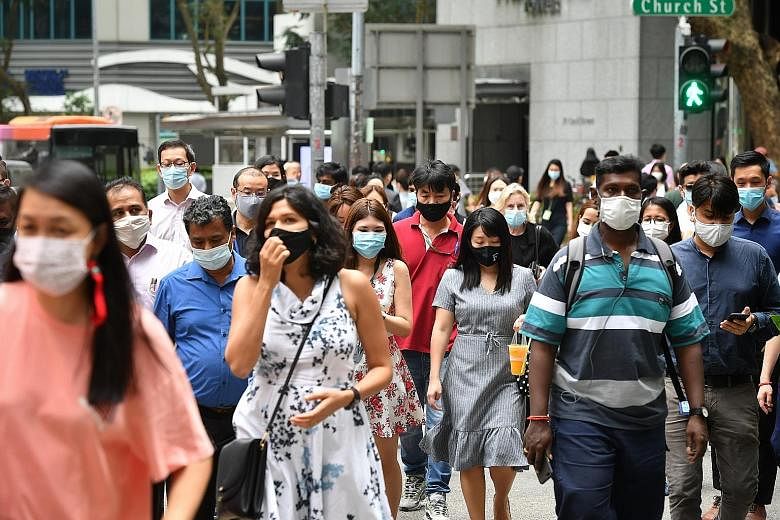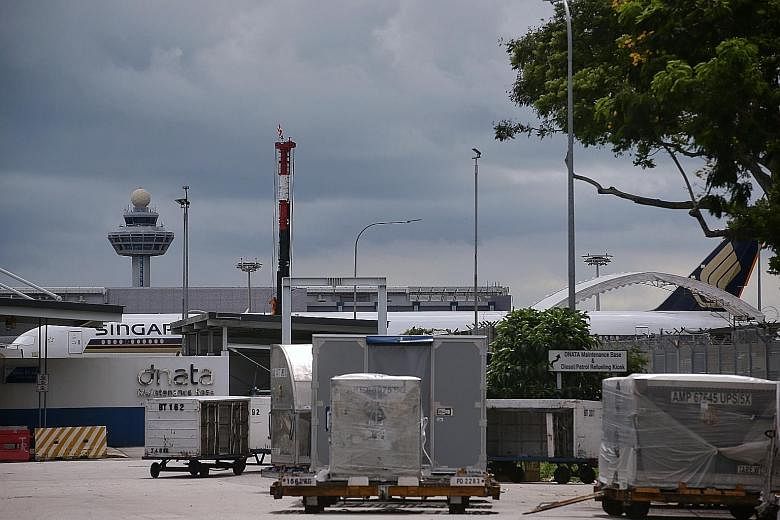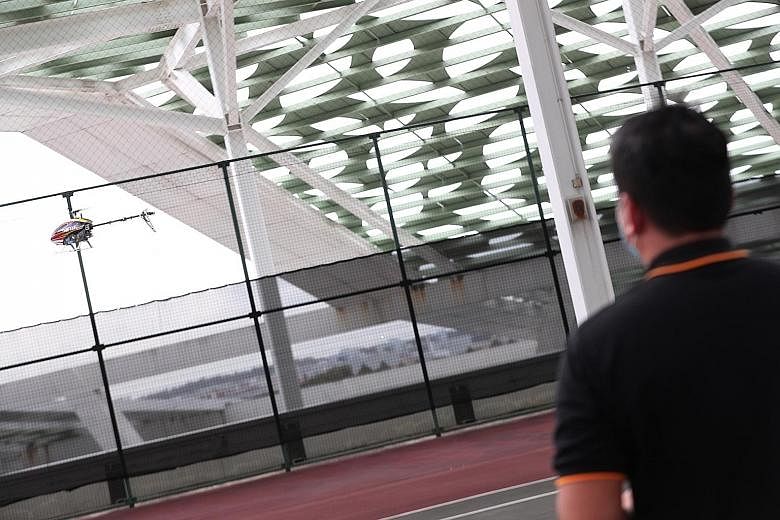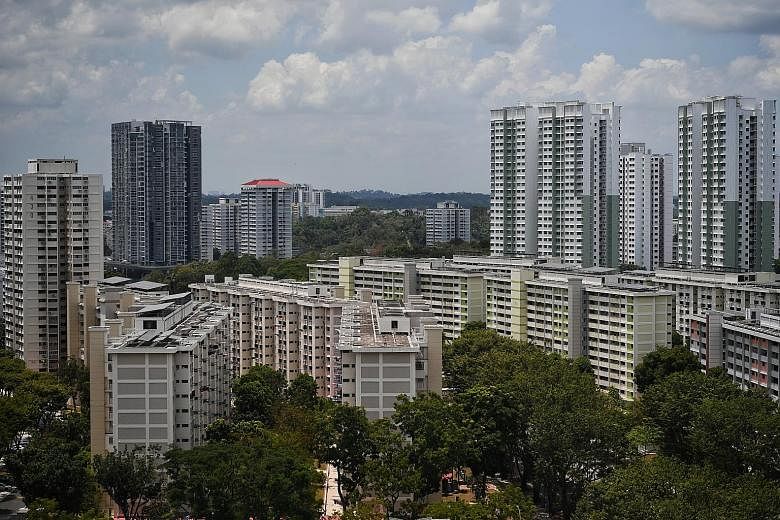1 Cushioning petrol duty hikes
As part of measures to shift towards a greener and sustainable Singapore for all generations, petrol duty rates will be raised by 15 cents per litre for premium petrol and 10 cents per litre for intermediate petrol.
The Government will set aside $113 million to provide rebates for petrol and petrol-hybrid vehicles, to ease the transition following the hike.
There will be a 15 per cent road tax rebate for owners of private cars for one year, and a 60 per cent rebate for those owning motorcycles. Owners of commercial vehicles will get a 100 per cent tax rebate for a year.
Additional petrol duty rebates for motorcycles, taxis and private-hire cars will be introduced by the middle of this year, with more details to be released next month.
Taken together, these measures will offset about one year of petrol duty increases for taxis and motorcycles, and about two-thirds for commercial vehicles and cars.
Some full-time delivery and ride-hailing drivers baulked at the impact this would have on their earnings, with some saying they would have to drive more to cover the increased cost of petrol.
Leader of the Opposition Pritam Singh slammed the hike as an "ill-timed bolt from the blue".
2 Transforming economy beyond Covid-19
Three strategies were outlined by Trade and Industry Minister Chan Chun Sing to help Singapore seize opportunities in the post-Covid-19 world: strengthen its global hub status, entrench it as a critical and hard-to-replace node in global value chains, and build capabilities in Singaporean enterprises and workers so they can compete in a more globalised world.
Local small and medium-sized enterprises (SMEs) will be given a leg-up. Under enhancements to Scale-up SG, the Government aims to groom another 50 future local champions over the next two years. Specialist advisers will be deployed at SME centres to provide support with finance and digitalisation.
Under the enhancements to the Global Innovation Alliance (GIA), which aims to help local start-ups expand and connect with technology and business communities overseas, companies will get support of up to 70 per cent of qualifying costs to co-innovate with overseas partners.
Access to new markets will be improved by expanding the GIA network from 15 to 25 cities over the next five years.
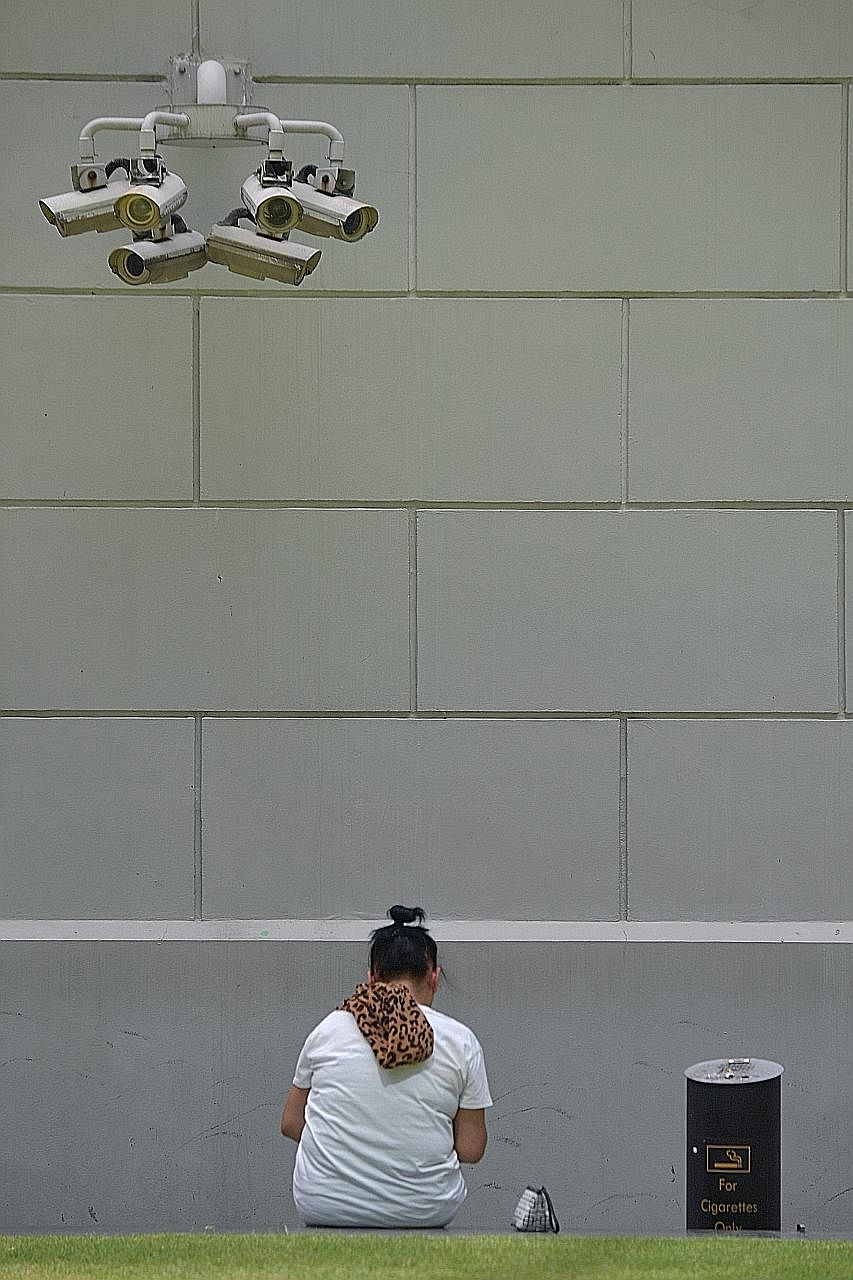
3 Keeping Singapore safe
By 2025, Singapore will have its first top-level biosafety containment lab to help it prepare for the next pandemic.
Some $90 million will be spent to upgrade the capabilities of the national defence research agency, DSO National Laboratories, enabling it to isolate and culture new emerging infectious disease pathogens, and develop diagnostics and solutions.
The Singapore Armed Forces is also reviewing the way it classifies the fitness levels of national service enlistees - meaning that more people will be able to take on operational roles regardless of their medical fitness.
On the ground, more police cameras will be installed islandwide over the next few years, with Home Affairs Minister K. Shanmugam saying that these tools have been a "game changer" in helping to solve cases.
His ministry will also be "fine-tuning" proposed laws to counter hostile information campaigns and guard against the threat of foreign interference in domestic politics.
4 Helping businesses go digital
The Covid-19 pandemic saw a sizeable uptick in technology adoption throughout society, from hawker stalls to hotels. But more is being done.
A Chief Technology Officer-as-a-Service initiative to be launched later this year will help SMEs tap digital consultancy and project management services.
Ongoing digital initiatives have enjoyed strong outreach. The SMEs Go Digital programme has benefited more than 63,000 enterprises since its launch in 2017, with around 40,000 signing up last year.
At least 2,000 enterprises have gained access to overseas markets through e-commerce platforms under the Grow Digital scheme.
5 Strengthening the Singaporean core
One of the ministries that attracted a large number of speeches from MPs was the Ministry of Manpower, with legislators calling for better protection for gig economy, low-wage and mature workers.
While ministers stressed the need for the economy to remain open to talent, they noted the need to strengthen the Singaporean core. Manpower Minister Josephine Teo said: "Our fundamental objective is always to serve the interests of Singaporean workers. Access to foreign workers is meant to help grow a larger economic pie than we otherwise can. Therefore, the foreign workforce must act as a complement to our local workforce."
From May 1 this year, foreigners staying in Singapore on dependant's passes will need a work pass to work here, instead of a letter of consent. This means their employers will need to apply for an Employment Pass, S Pass or work permit for them, and the relevant qualifications will apply.
More changes to S Pass rules for foreigners could be phased in over this decade.
The authorities may consider extending the Jobs Growth Incentive of salary support for local hires beyond September, especially if job displacements continue due to the pandemic.
6 Boosting the hiring of older workers
MPs raised concerns such as the retirement adequacy of older workers, whether they have ample job options should they choose to work longer, and how to ensure that they remain relevant and future-ready.
Responding, the Manpower Ministry said that raising the statutory retirement age to 63 and the re-employment age to 68 will go ahead as planned on July 1 next year.
Grants for employers who hire older workers beyond the statutory retirement and re-employment ages will be extended. More than $200 million will be allocated for the Senior Worker Early Adopter Grant and the Part-Time Re-employment Grant, which were introduced in last year's Budget.
To be eligible, companies will need to adopt the Tripartite Standard on Age-Friendly Workplace Practices as an additional requirement for both grants.
These moves will help shape a new norm among employers, to raise the retirement and re-employment ages to 65 and 70 respectively, before 2030.
7 Making buying and renting of HDB flats easier
Flat buyers can submit their documents and be assessed for grants and loans in one application, instead of having to send multiple applications.
They can also apply for housing loans from participating financial institutions directly on the Housing Board flat portal.
Three previously separate eligibility checks will now be streamlined into one application, made through the HDB flat portal. The outcomes will then be sent to applicants in a new HDB Flat Eligibility letter.
Under a new pilot model later this year, singles will be able to apply for public rental flats without having to find a flatmate first. The Housing Board will appoint a social service agency to manage these flats.
8 A more inclusive education system
The Education Ministry unveiled plans to build more "bridges" and "ladders" to enable students to discover and develop their unique interests and strengths as they move up the system.
The Institute of Technical Education curriculum will be streamlined to allow more students to attain a Higher Nitec qualification within a shorter time.
The popular Polytechnic Foundation Programme, which prepares selected Normal (Academic) students for entry into polytechnics, will be reviewed to see how it can be expanded to cater to a more diverse profile of secondary school students. And a new private university of the arts will be formed by the alliance of the Lasalle College of the Arts and the Nanyang Academy of Fine Arts, to offer more degree pathways in the arts.
In the early childhood sector, starting from the second half of 2023, every pre-school will appoint an inclusion coordinator to identify and support children with developmental needs.
The KidStart programme, to help young children from low-income families, will be expanded to another three towns.
The Community Link (ComLink) programme, which provides comprehensive and coordinated support to low-income families, will also be expanded nationwide to 21 towns over two years. This will cover all 14,000 families with children who live in highly subsidised rental housing.
To ensure that schools are kept open to students from all backgrounds, the Education Ministry will review the Primary 1 registration framework to see how it can increase the number of places set aside under Phase 2C, which is the open phase for those who do not enjoy any form of priority admission.
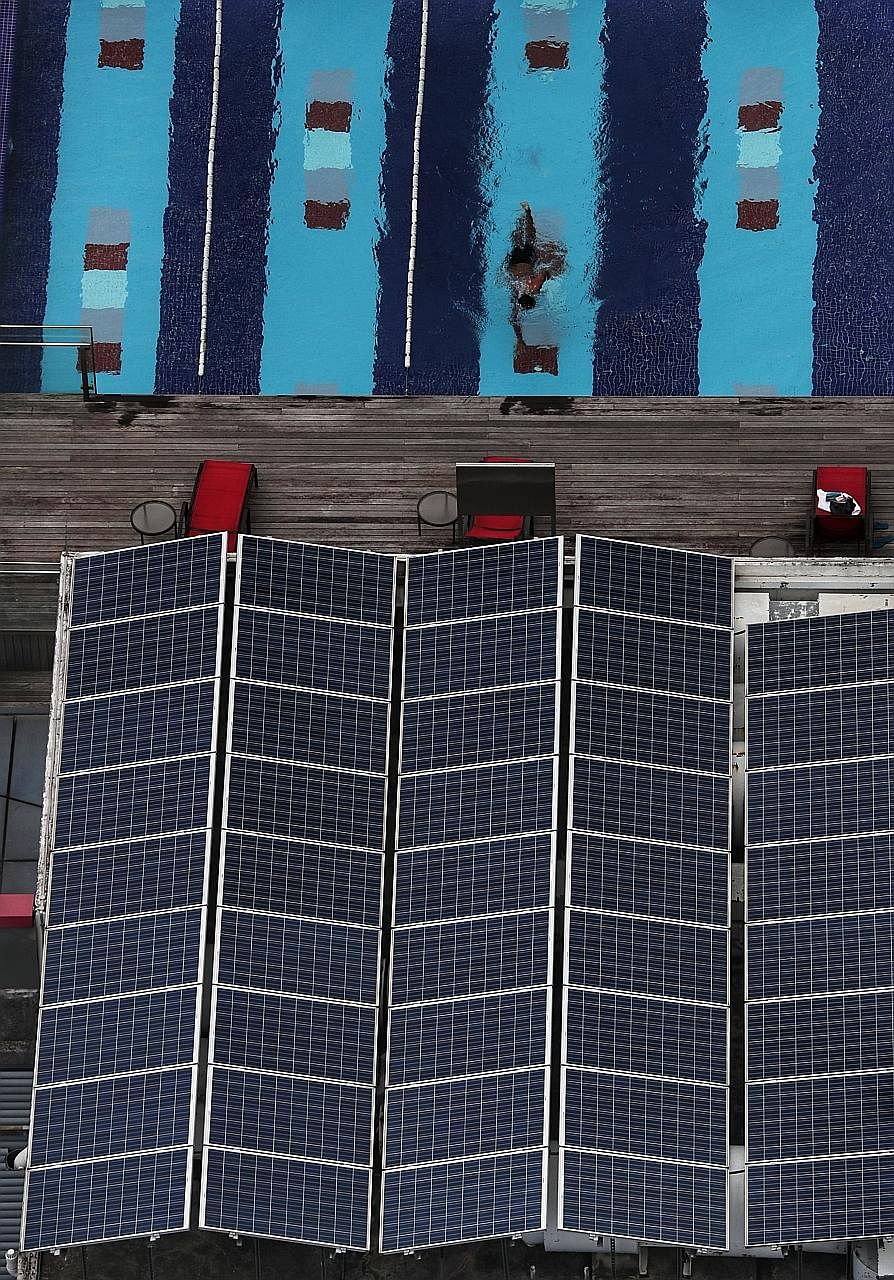
9 Becoming a bright green spark
Green campuses, electric vehicles and industry transformation were all brought up in the joint segment on sustainability, during which seven ministers spoke.
Buildings, which contribute more than 20 per cent to national emissions, will be made more energy-efficient.
Park spaces will be increased, with efforts made to go green even in recreational spaces such as Sentosa, which will be transformed into a carbon-neutral destination by 2030.
And a renewed push for electric vehicles looks set to reduce emissions from the land transport sector, which is now responsible for 14 per cent of Singapore's emissions.
Senior Minister Teo Chee Hean added that the goals Singapore has set are "not meant to be static" and that it will press ahead with emission-reducing measures within its control. But much will also depend on what is done internationally - from technological advancements to global collaboration, he said.
10 Targeting healthcare subsidies
As healthcare spending is set to rise with an ageing population, the Health Ministry is reviewing its subsidy framework to channel funds towards those who need them most, and help stretch every dollar.
From next year, higher-income patients will have to pay more at specialist outpatient clinics, where two new subsidy tiers have been introduced. The lowest subsidy rate will drop from 50 per cent to 30 per cent for those with a higher per capita household income (PCHI).
And acute hospitals, which now base subsidies on an individual's income, will switch to using PCHI instead - the means testing format now used by other public healthcare services.
At the same time, subsidy levels at community hospitals will go up so that they more closely reflect subsidies in acute hospitals.
The Covid-19 Mental Wellness Taskforce, set up last year to coordinate Singapore's response to the mental health needs arising from the pandemic, will also be transformed into an inter-agency platform to oversee such efforts beyond the crisis.
The task force has three immediate priorities: develop a national strategy to align the work of various agencies, set up a national website of mental health resources for individuals, and establish a mental health competency training framework.
11 Singapore Together through alliances
This new approach through partnerships between Singaporeans and the Government gained momentum, with various Singapore Together Alliances for Action (AfAs) announced.
AfAs are stakeholder and industry-led collaborations that push for improvements or seize key growth opportunities for Singapore. A total of 18 have been formed thus far, with the latest two announced by Minister for Culture, Community and Youth Edwin Tong yesterday.
One, on emerging needs and volunteerism, will focus on supporting mental wellness, helping seniors adapt to the new normal, and facilitating in-kind contributions.
The second, on corporate purpose, seeks to develop a national framework to guide companies in doing good.
Other AfAs look at supporting caregivers of persons with disabilities; helping companies create workplaces with work-life harmony; ground-up projects to uplift low-wage workers; enhancing online learning opportunities; and supplying smart devices to the needy.
